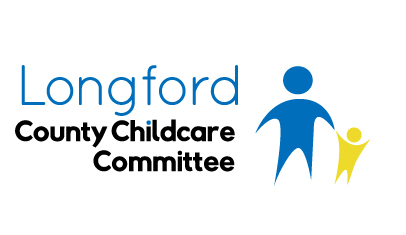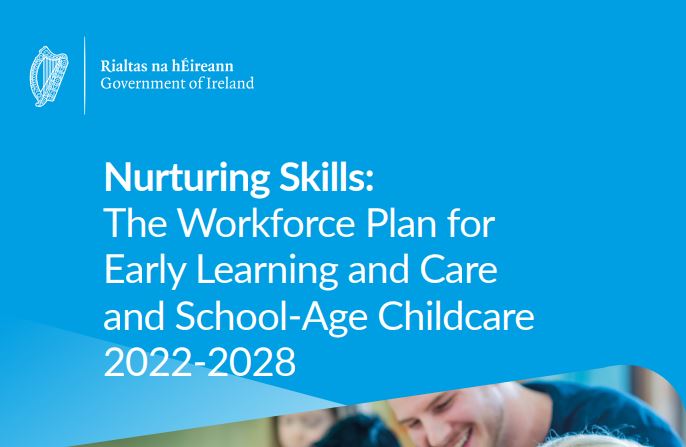From Department of Children, Equality, Disability, Integration and Youth
Published on 7 December 2021
Last updated on 7 December 2021
The Minister for Children, Equality, Disability, Integration and Youth, Roderic O’Gorman, T.D., today launched Nurturing Skills: The Workforce Plan for Early Learning and Care and School-Age Childcare, 2022-2028. Nurturing Skills aims to strengthen the ongoing process of professionalisation for those working in early learning and care (ELC) and school-age childcare (SAC).
Early Years Educators, School-Age Childcare Practitioners and childminders play a key role in supporting children’s development and well-being, working in partnership with families. Recognising their central importance for the quality of ELC and SAC, Nurturing Skills aims to support the professional development of the workforce and raise the profile of careers in the sector.
Nurturing Skills sets out actions to achieve workforce commitments in First 5, the Whole-of-Government Strategy for Babies, Young Children and their Families, including:
- Achieving a graduate-led workforce in ELC by 2028, with new financial supports to assist Early Years Educators to study while continuing to work in the sector;
- Supporting School-Age Childcare Practitioners to meet new qualification requirements that will be introduced incrementally over the coming years;
- Development of a career framework and strengthening career pathways, including new supports for leadership development;
- Building a national infrastructure for Continuing Professional Development for the sector; and
- Supporting staff recruitment, retention and diversity in the workforce.
Across ELC, SAC and childminding, the sector has a total workforce of more than 45,000, and each year several thousand students qualify to work in the sector. The national infrastructure and wider resources for Continuing Professional Development are expected to bring benefits right across the workforce. In addition, over the next 7 years, new financial supports will enable more than 5,000 Early Years Educators and 4,000 School-Age Childcare Practitioners to study for qualifications while continuing to work.
Actions in Nurturing Skills to develop career pathways, promote careers in the sector and support staff recruitment will complement efforts under way to improve pay and conditions of employment in the sector. In particular, a key enabler for the Workforce Plan will be the Joint Labour Committee for Early Years Services, which was recently established following a process begun in December 2020 by Minister O’Gorman.
Likewise, the new Core Funding stream announced in Budget 2022, will support service providers to meet higher costs arising from pay increases and from staff participation in training and professional development activities, without raising fees for parents.
Speaking at the launch, Minister O’Gorman said:
“It gives me great pleasure to publish Nurturing Skills. Through the new and enhanced supports it makes available, I am confident that this Workforce Plan will be a turning-point in the professional development of Early Years Educators and School-Age Childcare Practitioners and also in the recognition of the profession’s importance in supporting children’s development, learning and well-being.”
Nurturing Skills aims to build on the significant progress already made in raising skill levels across the workforce. New 2021 data released for the first time in the Workforce Plan indicates that the proportion of Early Years Educators with a relevant qualification at level 7 or higher on the National Framework of Qualifications has risen from 12% in 2012 to 34% in 2021, thus surpassing the 30% interim target for 2021 that was set in First 5. Nurturing Skills aims to increase this proportion to at least 50% by 2028. At the same time, it aims to increase the proportion of Early Years Educators with at least a level 6 qualification from 72% in 2021 to 85% in 2028.
The development of Nurturing Skills was informed by an OECD Country Policy Review of Early Childhood Education and Care in Ireland, which was conducted in parallel. The OECD Review, which was published on 2 December, found that Ireland is pursuing a strong policy agenda for early learning and care, and included a series of workforce-related recommendations that are reflected in commitments in Nurturing Skills.
An information webinar on this report, and Partnership for the Public Good, A New Funding Model for the Early Learning and Care and School-Age Childcare Sector, 2022-2028, will be made available to the sector later today, providing a detailed overview of both reports.
Read the report in English and Irish here: (www.gov.ie/nurturingskills).

